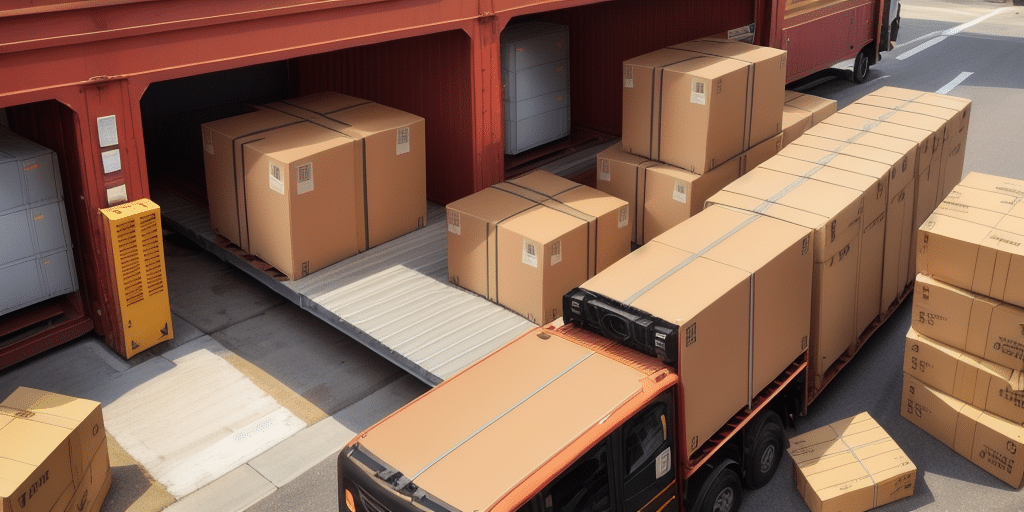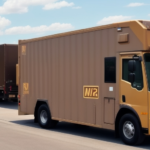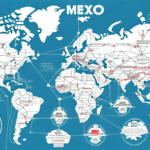Understanding the Costs of UPS International Shipping
Expanding your business globally requires a clear understanding of the costs associated with international shipping. UPS International Shipping offers a range of options tailored for businesses of all sizes. This guide explores the factors influencing UPS international shipping costs, methods to calculate these expenses, and strategies to optimize your shipping budget.
Key Factors Influencing UPS International Shipping Costs
Package Weight and Dimensions
The weight and size of your package are primary determinants of UPS shipping costs. Larger and heavier packages incur higher fees due to increased handling and transportation requirements.
Origin and Destination Countries
The countries involved in the shipment affect costs significantly. Shipping between distant countries generally costs more due to longer transit times and additional logistical complexities.
Service Level
UPS offers various service levels, including expedited and standard shipping. Faster delivery options typically come at a higher price.
Taxes and Customs Duties
Import taxes and customs duties imposed by the destination country can add to the overall shipping cost. These fees vary based on the type of goods and their value.
Mode of Transportation
UPS provides multiple transportation modes:
- Air Freight: Offers quick delivery but at a premium cost.
- Sea Freight: More economical for large shipments but takes longer.
- Ground Shipping: Suitable for regional deliveries with moderate costs.
Package Content and Special Requirements
Items that require special handling, such as hazardous materials or perishable goods, may incur additional charges due to the necessity for specialized packaging and handling procedures.
Calculating UPS International Shipping Costs
Using the UPS Shipping Calculator
To estimate your shipping costs, visit the UPS Shipping Calculator. Input details such as package weight, dimensions, origin, destination, and preferred service level to receive an estimated cost.
Considering Additional Services
Additional services like insurance, signature confirmation, and customs brokerage fees can increase the total shipping cost. Assess your needs to determine which services are necessary for your shipment.
Understanding Customs Fees and Taxes
Research the import regulations of the destination country to anticipate customs fees and taxes. The U.S. International Trade Administration provides resources to help businesses understand these requirements.
Comparing UPS with Other International Shipping Providers
UPS vs. FedEx
Both UPS and FedEx offer comprehensive international shipping services. While UPS is renowned for its extensive global network and reliability, FedEx is often praised for its faster delivery times and robust tracking capabilities. Learn more about FedEx international shipping.
UPS vs. DHL
DHL specializes in international shipping with a strong presence in Europe and Asia. Compared to UPS, DHL may offer more competitive rates for certain regions. However, UPS provides a broader range of services and better integration with e-commerce platforms.
UPS vs. USPS
The United States Postal Service (USPS) is often more cost-effective for smaller packages and offers International Priority and First-Class services. However, USPS may lack the comprehensive tracking and faster delivery options available with UPS.
Strategies to Save on UPS International Shipping
Negotiate Shipping Rates
Businesses with high shipping volumes can negotiate discounted rates with UPS. Establishing a business account and discussing your shipping needs with a UPS representative can lead to significant savings.
Optimize Packaging
Use appropriately sized packaging to minimize dimensional weight charges. Ensuring that your packages are compact and lightweight can reduce overall shipping costs.
Consolidate Shipments
Grouping multiple orders into a single shipment can lower costs by reducing the number of packages and benefiting from bulk shipping discounts.
Choose Economical Shipping Options
When time is not a critical factor, opting for standard or economy shipping services can result in lower expenses compared to expedited options.
Utilize UPS Shipping Software
Leverage UPS's shipping software tools, such as UPS Shipping Software, to manage and optimize your shipping processes, track expenses, and identify cost-saving opportunities.
Understanding Customs Fees and Taxes
Types of Duties and Taxes
Customs duties and taxes vary based on the shipment's origin, destination, and the nature of the goods. Common fees include:
- Import Duties: Based on the product category and value.
- Value-Added Tax (VAT) or Goods and Services Tax (GST): Applied in many countries on imported goods.
- Other Fees: Environmental fees, anti-dumping duties, and more.
Pre-Calculating Duties and Taxes
Use tools like the Harmonized Tariff Schedule to estimate potential duties and taxes for your shipments.
Compliance with Import Regulations
Ensure that your shipments comply with the destination country's import regulations to avoid delays, fines, or confiscation of goods. Consult resources like the U.S. Government's Foreign Travel Advice for detailed information.
Best Practices for Packaging and Labeling
Choosing the Right Packaging Materials
Select durable packaging materials that protect your goods during transit. For fragile items, use cushioning materials like bubble wrap or foam peanuts to prevent damage.
Accurate Labeling
Ensure that all labels are clear and accurate, including:
- Recipient's and sender's addresses
- Package weight and dimensions
- Handling instructions (e.g., fragile, hazardous)
- Customs declarations with precise descriptions and values
Complying with UPS Packaging Guidelines
Follow UPS's packaging guidelines to ensure your shipments meet the required standards, reducing the risk of delays or additional fees.
Tracking and Managing UPS International Shipments
Utilizing UPS Tracking Tools
Monitor your shipments in real-time using UPS's tracking features. Access updates via the UPS Tracking Portal, SMS alerts, or email notifications.
Managing Shipping Costs with Analytics
Use UPS's analytics tools to gain insights into your shipping patterns and expenses. This data can help you make informed decisions to optimize your shipping strategy and reduce costs.
Addressing Delivery Issues Promptly
Stay proactive in resolving any delivery issues by contacting UPS customer service or utilizing their online support resources. Prompt action can prevent minor issues from escalating into significant delays or additional costs.
The Future of UPS International Shipping
Emerging Technologies
Advancements like drone deliveries and autonomous vehicles are set to revolutionize the shipping industry, potentially reducing costs and improving delivery times.
Sustainability Initiatives
UPS is investing in sustainable practices, such as electric delivery vehicles and carbon offset programs, to minimize its environmental impact. These initiatives may influence future shipping costs and customer choices.
Adapting to Global E-Commerce Growth
As global e-commerce continues to expand, UPS is enhancing its infrastructure and service offerings to meet the increasing demand for efficient and reliable international shipping solutions.
Conclusion
UPS International Shipping provides robust solutions for businesses aiming to reach global markets. By understanding the various factors that influence shipping costs, utilizing available tools for cost calculation, and implementing strategic measures to optimize expenses, businesses can effectively manage their international shipping needs. Staying informed about emerging trends and maintaining compliance with international regulations will further enhance your shipping efficiency and cost-effectiveness.






















